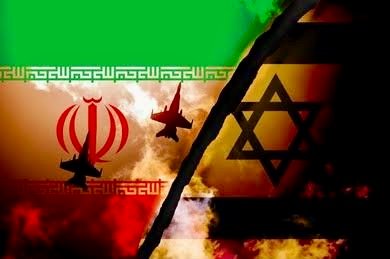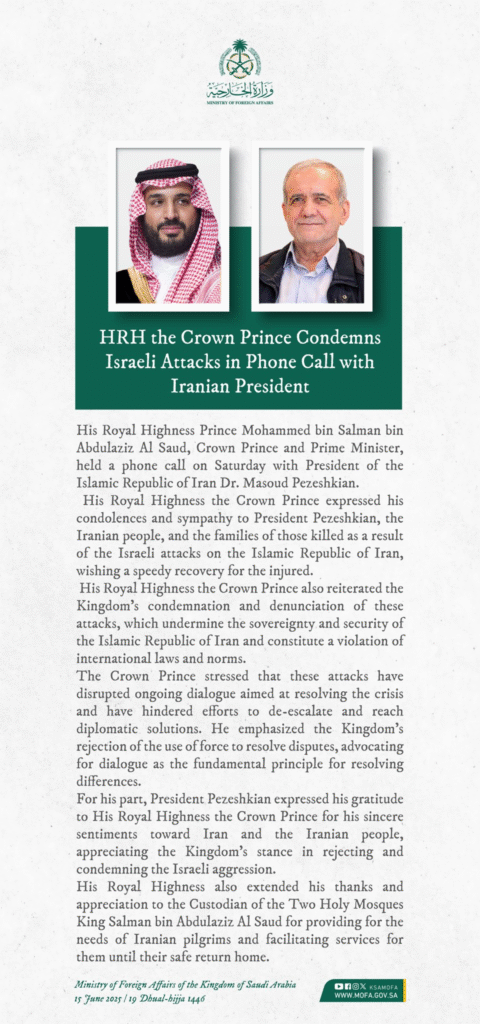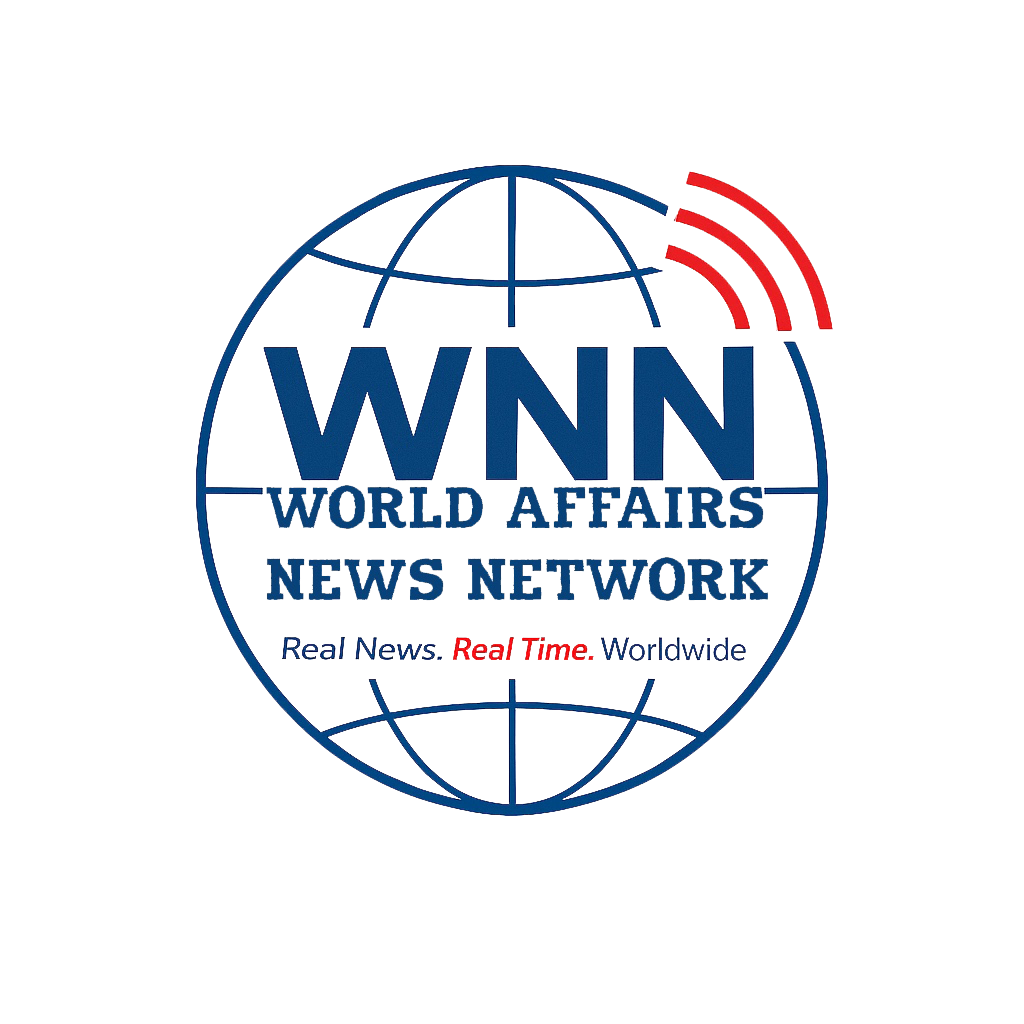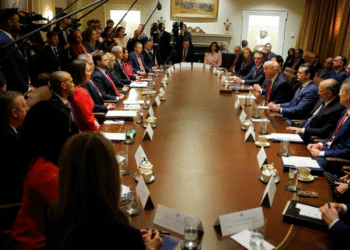TEHRAN / TEL AVIV / ALBERTA / NEW DELHI — The early hours of June 13, 2025, marked not just a tactical shift in the long-simmering Israel–Iran conflict, but a profound rupture in the Middle East’s fragile security framework. In a coordinated multi-domain campaign dubbed Operation Rising Lion, Israel launched a sweeping assault on Iran’s nuclear and military infrastructure. Over 200 Israeli fighter jets, cyber warfare teams, and Mossad-directed drone swarms targeted more than 100 sites across Iran, striking the Natanz uranium enrichment facility, ballistic missile stockpiles, and Islamic Revolutionary Guard Corps (IRGC) command nodes in Isfahan, Tabriz, and Hamadan.
Tehran confirmed 78 fatalities, including senior figures such as IRGC Commander Hossein Salami, Chief of Staff Mohammad Bagheri, General Gholam-Ali Rashid, and six nuclear scientists. Satellite imagery showed significant destruction to Natanz’s surface installations, although Iran’s deeper centrifuge networks may remain operational.
Israeli Prime Minister Benjamin Netanyahu, addressing the public shortly after the strikes, called the operation “a decisive step to neutralize Iran’s nuclear ambitions,” emphasizing that it was not an act of war, but “an act of survival.” Iran’s Supreme Leader Ayatollah Ali Khamenei denounced the assault as “a bloody crime” and warned that it “will not go unanswered.” Within hours, Iranian forces responded with over 150 ballistic missiles and more than 100 drones launched toward Israel. The barrage, while largely intercepted by Israel’s Iron Dome—reinforced by U.S. CENTCOM assistance—nevertheless caused civilian casualties. At least 17 people were killed and over 200 injured in impacted areas, including children in Tel Aviv’s Bat Yam and Jaffa districts.
The escalation could not have come at a more diplomatically awkward moment. Just days earlier, former U.S. President Donald Trump had completed a high-profile tour of the Gulf, where he floated the possibility of resuming nuclear negotiations and hinted at partial sanctions relief for Syria as a regional de-escalation measure. “The Middle East is ready for peace, not another generation of war,” he declared in Riyadh. Yet, in light of the Israeli airstrikes and Iranian retaliation, Trump’s words appear tragically obsolete. His post-attack appeal—“We can still make a deal”—seemed less a policy proposal than a political reflex.

What remains clear is that Israel has moved to unilaterally redefine its red lines. In doing so, it has rendered what little remained of the 2015 Joint Comprehensive Plan of Action (JCPOA) moot. For Iranian hardliners, the airstrikes have confirmed the futility of Western diplomacy and have reinforced the rationale for a more confrontational stance.
While missiles lit the skies above Tel Aviv and Tehran, the true economic aftershocks reverberated through Riyadh, Abu Dhabi, and Dubai. These Gulf capitals, deeply invested in post-oil diversification and economic transformation, now face renewed volatility. Saudi Arabia’s Tadawul index fell by nearly 4 percent, while UAE markets saw a sharp drop amid investor uncertainty. Major international investments in energy, infrastructure, and logistics were abruptly paused. Oil prices surged, with Brent crude rising by 12 percent to briefly touch $74.23 per barrel. More critically, global oil shipping insurance premiums spiked by 18 percent due to rising fears that Iran could retaliate by targeting the Strait of Hormuz—a chokepoint through which nearly 20 percent of the world’s oil transits.
Iranian Oil Minister Javad Owji did little to allay those concerns, stating, “Oil must flow—but not only for our adversaries. If our sovereignty is targeted, our response will go beyond airspace.” The message was unmistakable. While Tehran faces military pressure, it retains leverage over global energy markets.
Saudi Arabia’s flagship Vision 2030 economic agenda is now under strain. Crown Prince Mohammed bin Salman has long asserted that the Kingdom’s fight is with underdevelopment, not its neighbors. Yet, in the face of regional escalation, both development and diplomacy appear endangered. Despite the immediate crisis, Riyadh continues to pursue a broader transformation agenda—one that champions regional integration, economic cooperation, and strategic restraint over conflict. Saudi officials have reiterated their call for international collaboration to restore calm and warned that failure to de-escalate could trigger a wider war that neither side can afford.

The Kingdom remains committed to its role as a stabilizing force in the region, advocating for diplomacy and urging global partners to reinforce a framework that prevents further descent into chaos. As independent economic analyst Ghaleb Darwish warns, continued escalation could see oil prices climb well above $100 per barrel, with devastating implications for global markets and civilian populations across the region. Riyadh’s appeal to international actors is therefore not merely rhetorical but strategic: the cost of inaction could be catastrophic.
Meanwhile, the latest confrontation has underscored the growing vacuum in global diplomacy. The 2015 nuclear accord lies effectively dead. Despite convening emergency sessions, the UN Security Council has failed to issue even a symbolic resolution. Secretary-General António Guterres warned of a “catastrophic conflict,” but his words have had little practical impact. European leaders offered fragmented responses. French President Emmanuel Macron urged restraint, stating that “there can be no solution through bombs,” while German Chancellor Olaf Scholz advocated for an EU-led deconfliction mechanism. China – despite having mediated the Saudi-Iran thaw in 2023, remained largely silent. Russia, bogged down in prolonged conflicts in Ukraine and the Caucasus, has chosen not to engage.
Among regional leaders, it was Qatar’s Emir Sheikh Tamim bin Hamad Al Thani who offered perhaps the clearest voice of warning: “This is not just a war between two nations. This is the collapse of a regional security order built over decades. It must stop – now.”
As the skies over the Gulf burned, G7 leaders gathered in BANFF, Canada—originally to focus on AI governance and economic resilience. Instead, the summit pivoted into crisis mode. UK Prime Minister Keir Starmer announced the deployment of RAF assets to the Gulf and urged immediate de-escalation, citing the “immense” risk of wider war. U.S. Secretary of State Mike Pompeo, heading the American delegation, emphasized the need for energy coordination and strategic clarity. Canadian Prime Minister Mark Carney, the summit’s host, abandoned plans for a unified communiqué in favor of a Chair’s Summary, reflecting underlying divisions among G7 members.
Still, several proposals gained traction, including a collective call for ceasefire, strategic oil reserve coordination to stabilize global markets, a UN or EU-led deconfliction mechanism in the Gulf, and conditional diplomatic outreach to Tehran based on halting further retaliation. However, Iranian Foreign Minister Seyed Abbas Araghchi dismissed these overtures, stating, “The time for empty statements is over. Iran will defend itself—with or without Ottawa’s permission.”
June 13 may ultimately be remembered not merely as a day of military confrontation but as the moment when the old regional order collapsed. Built on uneasy deterrence, fragile diplomatic scaffolding, and an assumed American umbrella, that order is now giving way to a more dangerous landscape. Red lines are no longer drawn through dialogue but through missile arcs and retaliatory barrages. And while the G7’s alpine pronouncements may echo through press briefings, they will do little to shape outcomes unless backed by real strategic resolve and actionable diplomacy.
If multilateral frameworks fail to contain this moment, the world may not be facing another regional conflict—but the beginning of a new geopolitical alignment in the Middle East, one in which deterrence is not policy but daily practice.
- Dr. Fatemeh Attarpour from Tehran with Dr. Shahid Siddiqui in New Delhi. [Dr. Shahid Siddiqui is WNN’s senior geopolitical analyst specializing in Middle Eastern security, energy politics, and conflict diplomacy.] Follow him on X: @shahidsiddiqui




















